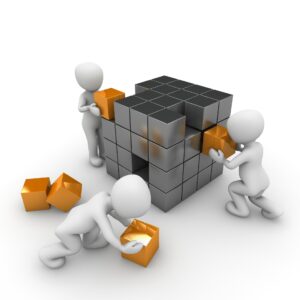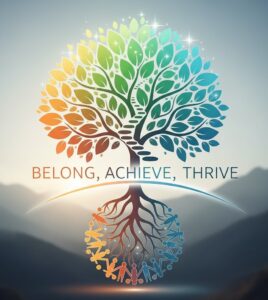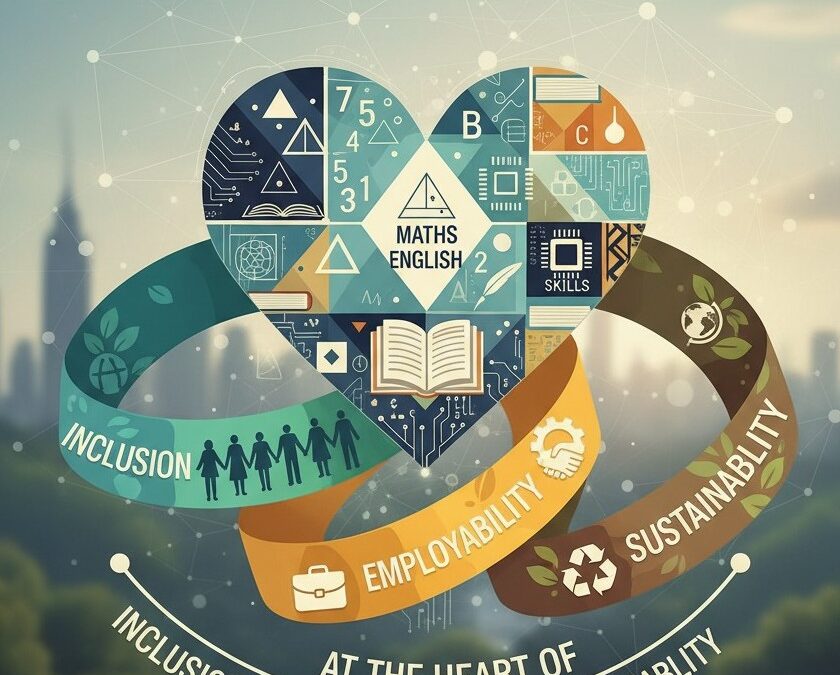Ofsted’s renewed framework: Maths, English and Digital Skills at the Heart of Inclusion, Employability and Sustainability
With Ofsted’s renewed framework for Further Education and Skills live from November 2025, most headlines are focusing on grading scales, report cards and inspection cycles. But beneath those headlines lies a far more important story, one that redefines what it means for learners to belong, achieve and thrive. Christine shares all.
For the first time, Maths, English and Digital Skills are positioned not as bolt-ons to employability, but as the language of inclusion itself, the way learners access, engage and progress in a rapidly changing world.
This isn’t a compliance exercise.
It’s an invitation to re-imagine skills as gateways to belonging and to see inclusion as the foundation of confidence, employability and sustainability.

Ofsted’s renewed framework shift skills from bolt-ons to building blocks
In his recent national Ofsted briefing, Paul Cocker offered a line that cuts through much of the sector noise:
“It’s not necessarily about qualifications… learners still need the skills to be able to access the learning that you’re offering.” —Paul Cocker, Ofsted FES Update 2025
That single sentence captures the spirit of the new framework. It recognises that inclusion begins long before qualification success, with the ability to participate, contribute and communicate.
The Further Education and Skills Inspection Toolkit (2025) reinforces this emphasis, identifying “learners without level 2 English and/or mathematics” as a key group inspectors must consider when evaluating inclusion and participation.
In other words, literacy, numeracy and digital fluency are now indicators of inclusion.
They are the means through which learners navigate systems, solve problems and demonstrate the confidence employers seek.

Belong, Achieve, Thrive
Ofsted’s renewed framework introduces a new lens for inspection built around three connected experiences: Belong – Achieve – Thrive.
These are more than values statements, they are measurable, teachable and deeply practical.
| Dimension | What it means for learners | Connection to Core Skills |
|---|---|---|
| Belong | Learners feel part of their learning community; they communicate, collaborate and contribute both online and in person. | English and digital confidence enable learners to express themselves, participate safely and connect with peers and tutors. |
| Achieve | Learners make meaningful progress in knowledge, skills and behaviours. | Functional maths and literacy allow learners to apply learning to workplace, home and community contexts. |
| Thrive | Learners grow personally and professionally, developing resilience, digital adaptability and career confidence. | Digital fluency, sustainability awareness and employability planning build readiness for life and work. |
As the Operating Guide (2025) explains:
“Inspectors will consider how well learners and apprentices achieve, academically and personally; belong, feel valued and attend, behave and contribute positively; and thrive, are kept safe and are able to flourish… whatever their background or individual needs.”
Every aspect of Belong – Achieve – Thrive depends on the confident use of core skills.

Inclusion by design
The inclusion evaluation area now applies across all provision types. Inspectors are already exploring not only what providers do, but how they identify and remove barriers.
The Toolkit makes this explicit:
“Inspectors will consider the systems and processes leaders put in place to identify the needs of children and learners and to address and review the support they receive… including those without level 2 English and mathematics.”
This aligns with the graduated approach — Assess, Plan, Do, Review — familiar in SEND practice but now extended to all learners who face barriers to participation.
In practical terms, inclusion by design means:
- Building Maths, English and Digital Skill development into curriculum intent rather than treating them as remedial extras.
- Contextualising tasks: budgeting, measuring, communicating, analysing data, so that core skills are visibly useful.
- Linking these to employability and CEIAG, so learners can connect classroom learning to career goals.
- Embedding sustainability themes: from energy use to food waste, as real-life contexts for problem-solving.
When learners see purpose, confidence follows.

Ofsted’s renewed framework links digital confidence with sustainable skills
Although “digital” rarely appears as a headline in the new documentation, it is woven through every evaluation area, from curriculum design to leadership and governance.
Ofsted’s position on Artificial Intelligence captures this nuance perfectly:
“Providers’ use of artificial intelligence (AI) is not an explicit part of inspection… Our focus is on the quality of decision-making about AI.” — Inspection Information (2025)
That phrase, “quality of decision-making”, reframes digital capability as judgement, not just tool use. Digital inclusion becomes about agency: equipping staff and learners to make informed, ethical and creative choices in a connected world.
It also links directly to sustainability and employability.
Digital skills underpin green careers, responsible innovation and the data literacy needed to measure impact. Embedding digital literacy within sustainability or CEIAG projects, such as calculating carbon footprints or analysing local labour-market data, makes learning purposeful and future-focused.
From compliance to confidence
Taken together, these changes represent a profound mindset shift.
Maths, English and Digital Skills are no longer barriers to overcome; they are bridges that connect learning to life.
For leaders and tutors, the key questions are now:
- How do we know learners are developing the skills that matter?
- How have we adapted our curriculum so they can demonstrate them?
- How do we evidence progress through experience, not paperwork?
Ofsted’s renewed framework invites us to move beyond “inspection choreography” and towards authentic practice, where inclusion, employability, CEIAG and sustainability sit at the centre of quality.
Core Skills for Inclusion aligned to Ofsted’s renewed framework – Provider Checklist
I’ve developed a simple self-review tool aligned to the 2025 framework.
Creating Excellence Provider Checklist: Core Skills for Inclusion (Ofsted 2025 Ready)
Embedding Maths, English, Digital, Sustainability, CEIAG and Employability Skills within the Belong – Achieve – Thrive Framework.
Here’s a preview of the five sections:
- Assess – Identify barriers
Map initial assessments to the graduated approach. Record where literacy, numeracy or digital gaps affect access or confidence. - Plan – Integrate the solutions
Build core skills and CEIAG links into curriculum intent and delivery plans. - Do – Deliver inclusively
Embed low-stakes practice, contextualised Maths/English tasks and digital collaboration. - Review – Evidence the impact
Capture progression through participation, retention and learner voice, not just qualifications. - Lead – Create a culture of belonging
Use the Belong – Achieve – Thrive lens in QA, CPD and leadership discussions.
Click Here To Download Creating Excellence’s Provider Checklist
Use it to review how confidently your organisation embeds the core skills of Maths, English and Digital Skill development within inclusive, employability-focused and sustainable learning experiences.
A call to leadership
With Ofsted’s renewed framework now live and first inspections just around the corner, this is the moment for reflection, not reaction.
When Ofsted talks about inclusion, it’s easy to hear compliance. But inclusion through Maths, English and Digital Skills development isn’t about inspection readiness, it’s about life readiness.
Providers who embrace this shift will not only meet the new expectations; they’ll set the benchmark for what strong and exceptional practice looks like in a changing world.
Because in the end, inclusion isn’t a policy area, it’s a practice.
And the language of that practice is Maths, English and Digital.

